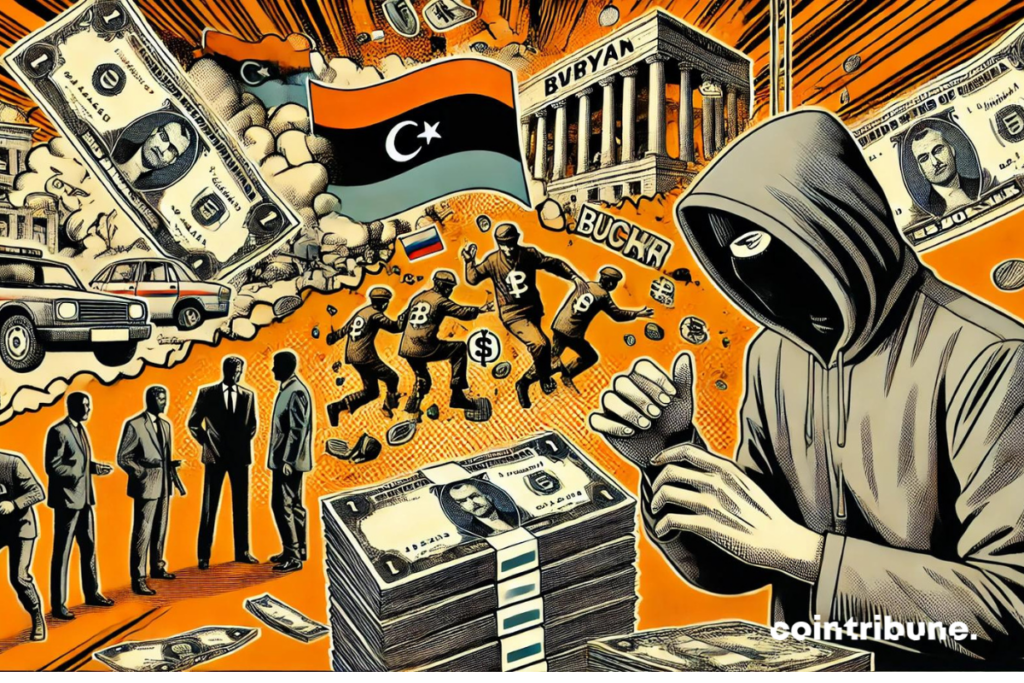Economy: Russia accused of devaluing the Libyan dinar!
0
0
The dramatic devaluation of the Libyan dinar has recently drawn the attention of international observers. Libyan authorities attribute this sharp drop to a wave of counterfeit banknotes, which appear to originate from Russia. This revelation raises crucial questions about Moscow’s involvement in the economic affairs of Libya, a country already plagued by conflict and chronic political instability.

The Discovery of Counterfeit Banknotes
On June 24, Reuters published a report detailing how the influx of counterfeit banknotes may have contributed to the devaluation of the Libyan dinar. These bills were allegedly exchanged for US dollars. Libyan authorities suspect that the Russian printer Goznak might be behind this illicit currency. Diplomatic sources and the international investigative group The Sentry also confirm the presence of these counterfeit banknotes in the country.
The falsified banknotes are reported to have been introduced in Libya, where they were exchanged in the east of the country, a region controlled by Commander Khalifa Haftar. This region has also previously benefited from Russian funding for infrastructure projects. New information suggests these banknotes might have been used to finance Russian mercenary activities in the region and the Sahel. For now, neither the Central Bank of Libya (CBL) nor the Libyan National Army has officially responded to these allegations.
Economic Consequences for Libya and Russia
The devaluation of the Libyan dinar, partly caused by these counterfeit banknotes, further exacerbates the economic and political crisis in Libya. Through Goznak, Russia provided billions of dinars to the eastern Libyan government before the formation of the unity government in 2020. Although this practice ceased after a ceasefire agreement, the repercussions of these actions continue to affect the country’s economic stability.
The accusations against Russia could have significant diplomatic repercussions. The international community might intensify its investigations into Russian involvement in Libya and other unstable regions. Meanwhile, Libya will face the daunting task of stabilizing its economy and restoring confidence in its national currency. The Libyan government will also need to strengthen its financial security measures to prevent future fraud.
In summary, this counterfeit banknotes affair highlights the complex challenges Libya faces. The devaluation of the Libyan dinar is not just an economic problem but also a symptom of broader geopolitical conflicts in the region. Transparency and international cooperation will be essential to resolve this crisis and stabilize the situation in Libya.
0
0







